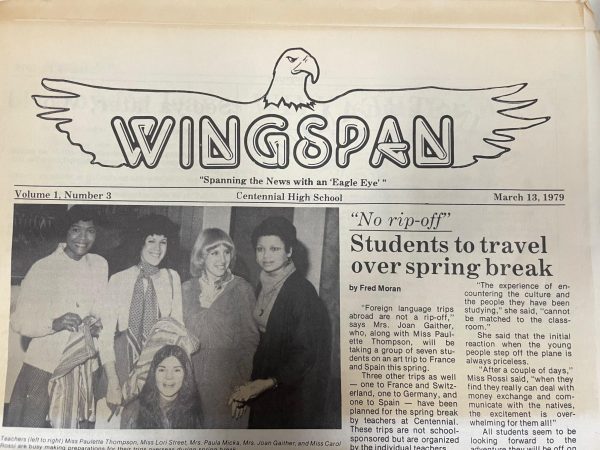Affirmative action case explained: How your college admission may be affected
Supreme Court case over affirmative action constitutionality likely to have major impacts on college admissions

Source: AP News
Students for Fair Admissions (SFFA) v. President and Fellows of Harvard College is a highly controversial Supreme Court case slated to overturn a long-standing precedent. The organization is suing the prestigious university on the basis that their admissions process violates Title VI of the Civil Rights Act of 1964, which states that “no person in the United States shall, on the ground of race, color, or national origin, be excluded from participation in, be denied the benefits of, or be subjected to discrimination under any program or activity receiving Federal financial assistance.” The plaintiff holds that Harvard’s admissions process discriminates against Asian American applicants in favor of white applicants.

The university’s admissions process involves the use of affirmative action, a widely-used process in which colleges and employers take steps to provide opportunities for people of diverse, historically underrepresented backgrounds. As Centennial government teacher David Riddler states, “the purpose of affirmative action…was to right a historical wrong.” The case calls into question the constitutionality of employing affirmative action in college admissions decisions.
Cases like Students for Fair Admissions (SFFA) v. President and Fellows of Harvard College are no strangers to the Supreme Court; most notably, Regents of University of California v. Bakke asserted that while racial quotas in college admissions were unconstitutional, affirmative action was considered constitutional since it worked to promote diversity under the guise that colleges review applications holistically, making race just one of many factors. The 1978 case has set a precedent for colleges to follow, laying out how a school determines who gets in and why. “In absence of legislation, a precedent kind of establishes what the law of the land is gonna be on that particular issue, and so with affirmative action, those precedent cases have guided universities in what they can and can’t do for…years,” states Riddler. In fact, Harvard’s own admissions policy has been cited by the Supreme Court twice as an exemplar for other colleges to follow.
However, with the highly conservative makeup of the Supreme Court, it is likely that the Bakke case will be overturned, rendering the use of affirmative action unconstitutional, meaning that admissions personnel at public, government-sponsored universities would not be able to take race into account in admissions decisions. Riddler states that, “the argument in favor of getting rid of it is that the 14th amendment guarantees equal protection for all people…I’ve read that Justice Roberts has made this argument that discrimination is discrimination; it doesn’t matter if it’s benefitting a group that’s been wronged, everyone deserves equal protection and treatment.” The idea is that “even if the intention is good, you can’t have a system designed to give preference,” Riddler shares. The decision will likely heavily influence the diversity of these schools. Harvard.edu writes that “if Harvard were to stop considering race, the percent of the class that is African American would drop from 14% to 6%, and the percent that is Latinx would drop from 14% to 9%. The percent that is Asian American would increase slightly from 24% to 27%.” Harvard would not be an isolated case; the decision will affect every publicly-funded university, along with millions of applicants across the country this fall, as the decision is set to be made this June. “It’ll be interesting to see if that will inhibit or create a barrier for students of color or allow another kind of avenue to create a diverse student body without using race explicitly as a factor,” says Riddler. Like many Court decisions, the final verdict is likely to come with some gray area. He notes that there are “ways that colleges could adapt to account for creating more diversity.” For example, there are ideas to use zip code preferences, given that zip codes can reveal a person’s socioeconomic status and thus in some cases race. In this sense, giving preference to certain zip codes could allow a school to create a diverse student body. Another notion is to abolish legacy admissions, a process in which students whose parents or family members are alumni of the school are given preference in application decisions. Many argue that this process blocks diversity due to the historic lack of higher education opportunities given to minorities. Still others argue for programs like the state of Texas has, in which a student in the top 10% of their high school class, regardless of the rating of their school or district, is guaranteed automatic admission to all state-funded universities. The College Board is closely monitoring the case, and has created an action guide for schools as to how to adjust their applications, recruitment practices, and financial aid and scholarship policies to eliminate the factor of race. While Riddler admits that the adjustments schools may have to make will “be awkward, probably, in the first few years,” he notes that the overturning of this precedent will likely not have the same backlash as the recent overturning of Roe v. Wade. “The decision won’t reverberate like the Dobbs decision did. People aren’t gonna be as passionate as a whole. I think obviously certain groups will feel like the decision went against them, but I don’t think you’ll feel a big national fervor against the decision.”
While the decision will likely have an impact, the extent of it will only be understood once college applications undergo review in the coming months. Only time will tell if affirmative action helps or hinders diversity in a college’s student population; for right now, students, parents, and colleges are anxiously waiting to see.
nc/rm/jy/ew
For more breaking news and photos, follow The Wingspan on Instagram and Twitter @CHSWingspan.



